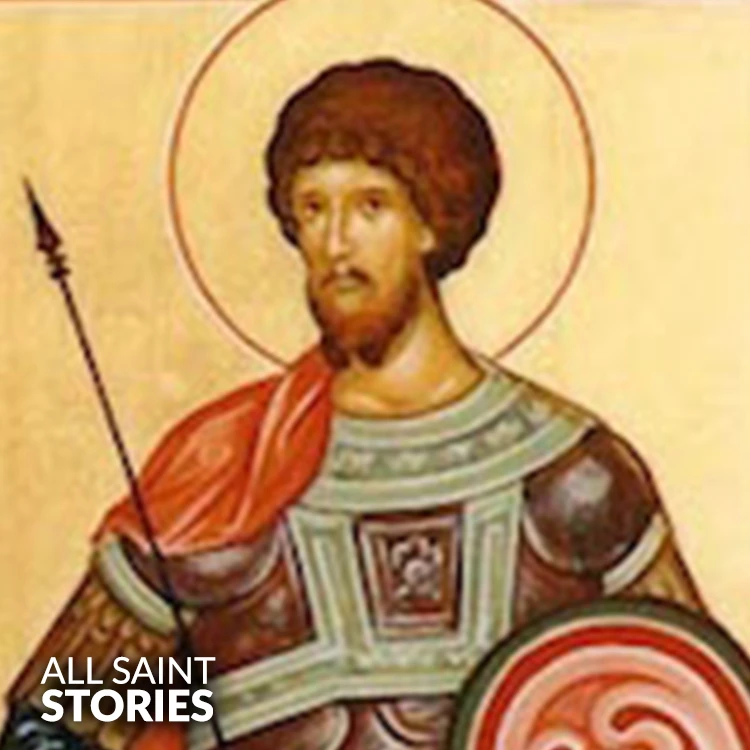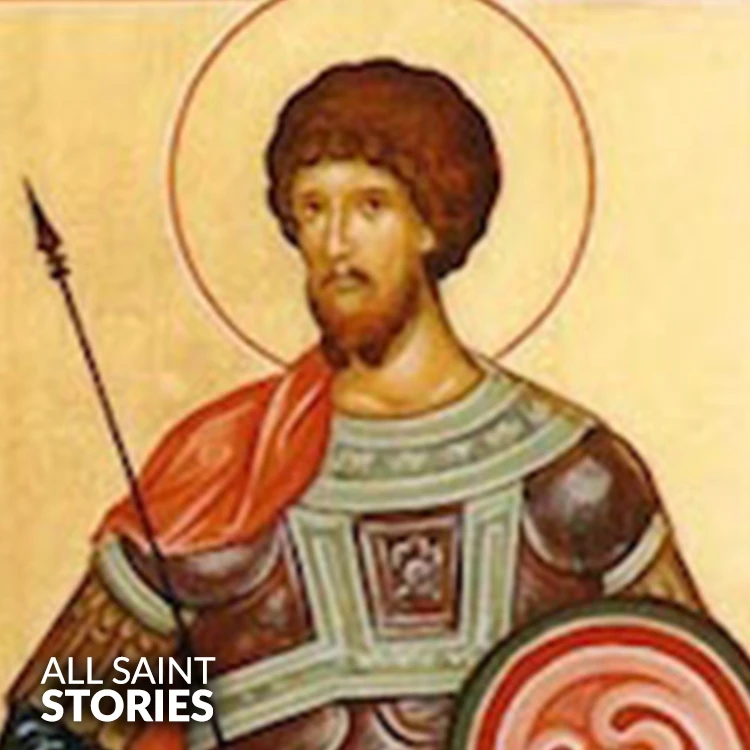"Saint Romanus, faithful servant of God, You endured great trials with strength and grace. Intercede for us in our times of need, And help us to remain steadfast in our faith. Guide us in our struggles, And lead us closer to Christ, Now and forever. Amen."
ST. ROMANUS (MARTYR)
ST. ROMANUS (MARTYR)

St. Romanus is an early Christian martyr who was executed for his steadfast faith during the persecution under Emperor Diocletian in the early 4th century. He is venerated for his refusal to recant Christianity, even under torture. His feast day is celebrated on November 18th, remembering his sacrifice for Christ.
St. Romanus was a Christian martyr who lived during the harsh era of Roman persecution under Emperor Diocletian, one of the most infamous periods for Christians in the early centuries. Romanus is thought to have been a deacon, although some accounts place him as a layman, and he was known for his devout faith and commitment to the Christian cause.
During the height of the persecution, Romanus was arrested for his Christian beliefs. The Roman authorities, seeking to extinguish the growing Christian movement, subjected him to various forms of torture in hopes of making him renounce his faith. Despite these trials, Romanus refused to betray Christ. According to the accounts, he was brought before Roman magistrates who tried to force him to offer sacrifices to the Roman gods as a demonstration of loyalty to the Empire. Romanus, unwavering in his belief, rejected these demands.
His steadfast refusal to recant was seen as an act of defiance against the Roman authorities, which ultimately led to his execution. Like many martyrs of the time, the exact details of his death remain unclear, but it is believed that Romanus was either beheaded or killed in some form of brutal execution. His death, however, would not be in vain; his martyrdom only strengthened the resolve of other Christians and became a source of inspiration for future generations.
St. Romanus' death is commemorated on November 18th each year, a day set aside to honor his martyrdom and the example he set of courage and faith in the face of unimaginable suffering. As with many early Christian martyrs, the precise details of his life and death are difficult to verify, but his story has been preserved through Christian tradition. Romanus is remembered as one of the countless martyrs who gave their lives for their belief in Jesus Christ and for the sake of spreading the Christian faith, even at the cost of their own lives.
His legacy lives on in the Christian community as a symbol of unwavering faith and the price of following Christ. St. Romanus' feast day serves as a reminder of the cost of discipleship and the strength that comes from remaining faithful to one’s beliefs, regardless of the earthly consequences.
Although the exact place of his burial is not definitively known, early Christian martyrs like Romanus were often buried in the Roman catacombs, a place where many Christians were laid to rest during times of persecution. These catacombs have become historical sites that bear witness to the early Christian experience in Rome.
The canonization process during this time was not formalized as it is today, but early martyrs like St. Romanus were often venerated by the faithful shortly after their deaths, with their feast days becoming part of the liturgical calendar. The commemoration of such figures reminds Christians of the enduring power of faith and the courage to stand firm even when faced with the most severe trials.
Video Not Found
The information on this website is compiled from various trusted sources. While we aim for accuracy, some details may be incomplete or contain discrepancies.
If you notice any errors or have additional information about this saint, please use the form on the left to share your suggestions. Your input helps us improve and maintain reliable content for everyone.
All submissions are reviewed carefully, and your personal details will remain confidential. Thank you for contributing to the accuracy and value of this resource.
Credits & Acknowledgments
- Anudina Visudhar (Malayalam) – Life of Saints for Everyday
by Msgr. Thomas Moothedan, M.A., D.D. - Saint Companions for Each Day
by A. J. M. Mausolfe & J. K. Mausolfe - US Catholic (Faith in Real Life) – Informational articles
- Wikipedia – General reference content and images
- Anastpaul.com – Saint images and reflections
- Pravachaka Sabdam (Malayalam) – Saint-related content and insights
We sincerely thank these authors and platforms for their valuable contributions. If we have unintentionally missed any attribution, please notify us, and we will make the correction promptly.
If you have any suggestion about ST. ROMANUS (MARTYR)
Your suggestion will help improve the information about this saint. Your details will not be disclosed anywhere.
© 2026 Copyright @ www.allsaintstories.com




 English
English
 Italian
Italian
 French
French
 Spanish
Spanish
 Malayalam
Malayalam
 Russian
Russian
 Korean
Korean
 Sinhala
Sinhala
 Japanese
Japanese
 Arabic
Arabic
 Portuguese
Portuguese
 Bantu
Bantu
 Greek
Greek
 German
German
 Dutch
Dutch
 Filipino
Filipino